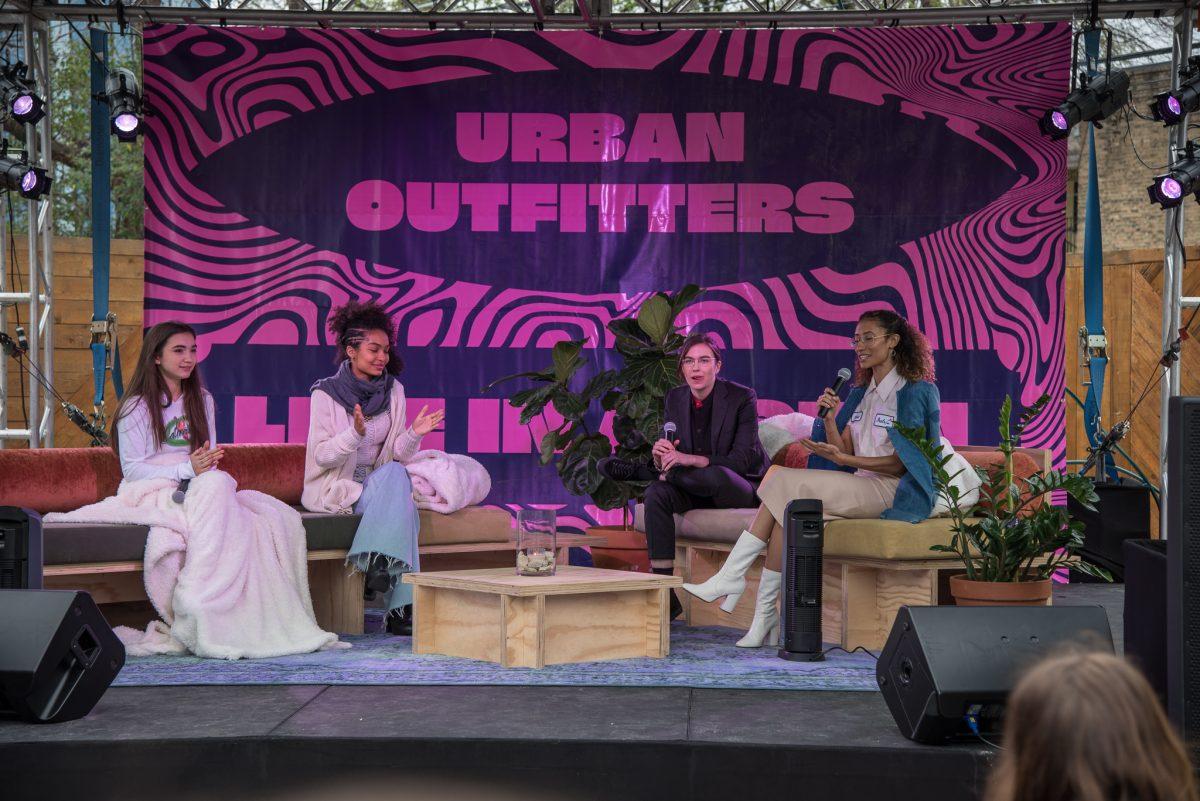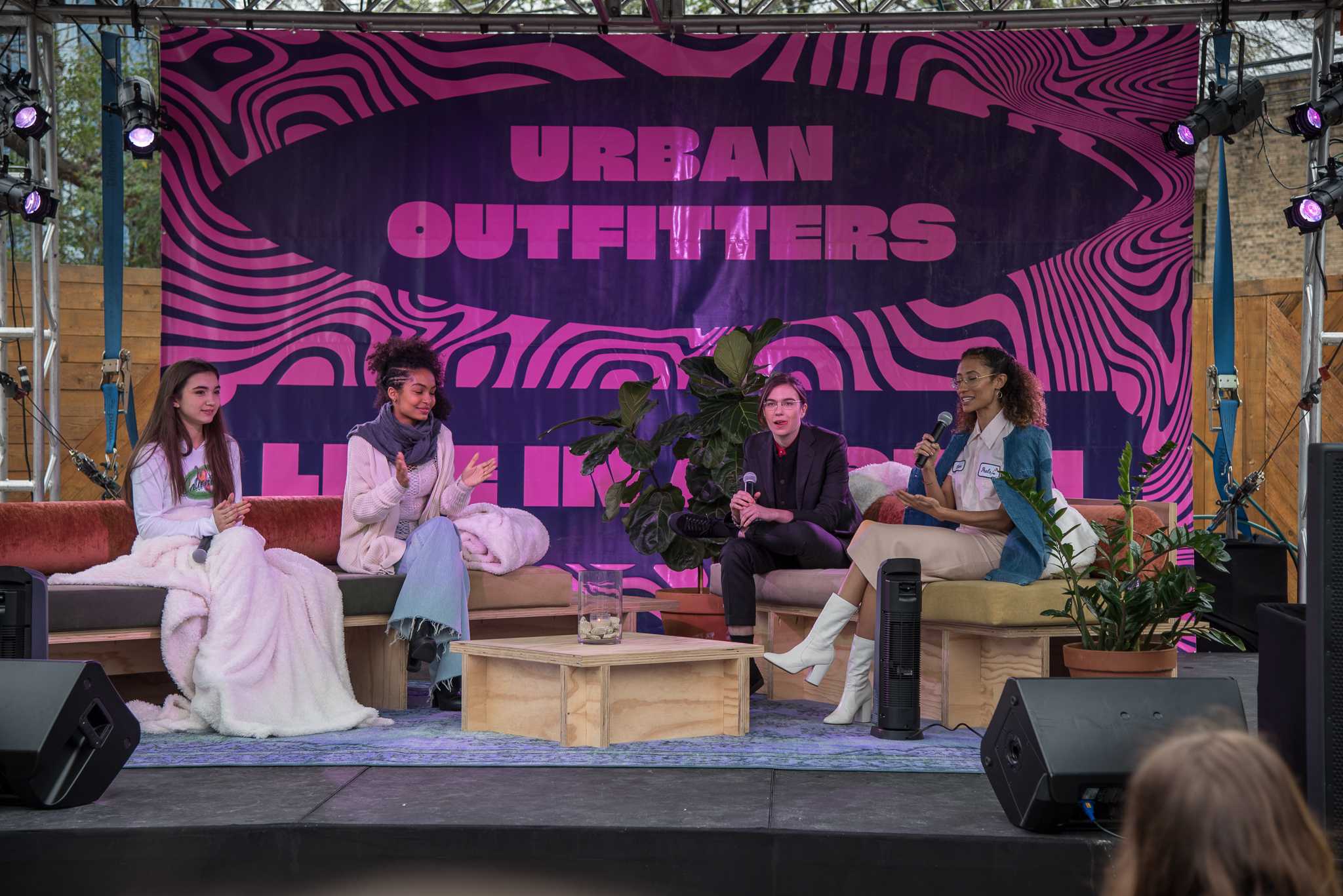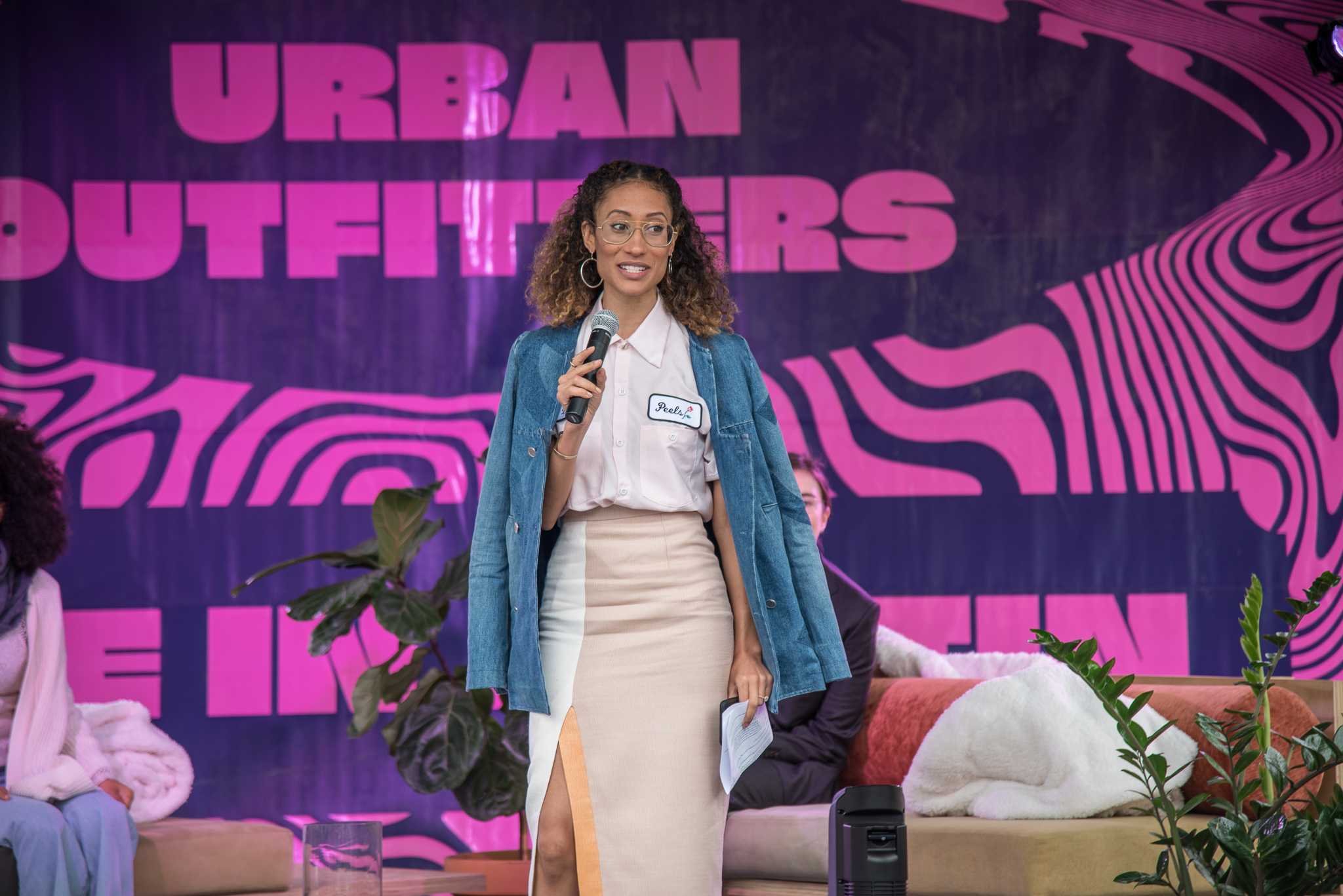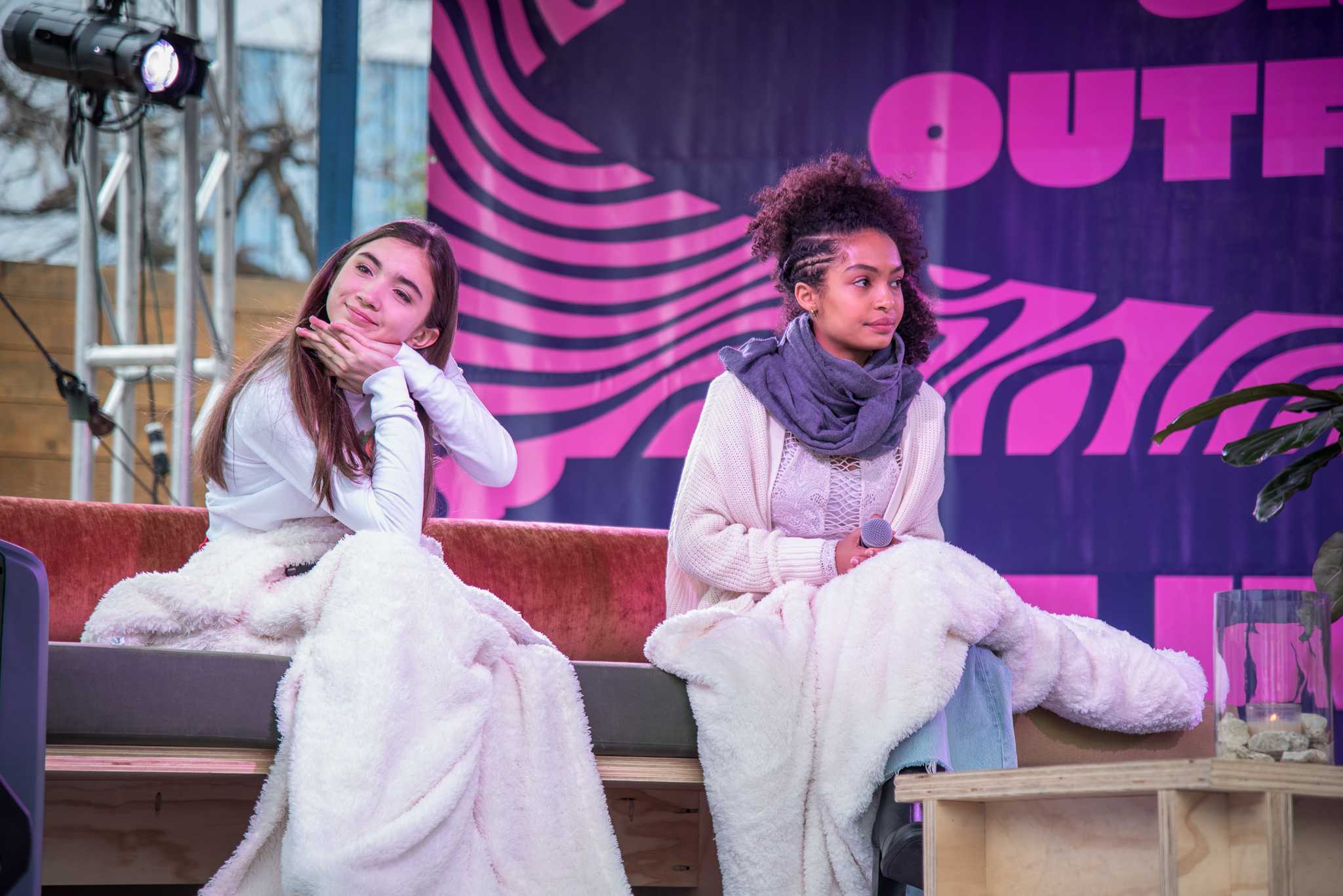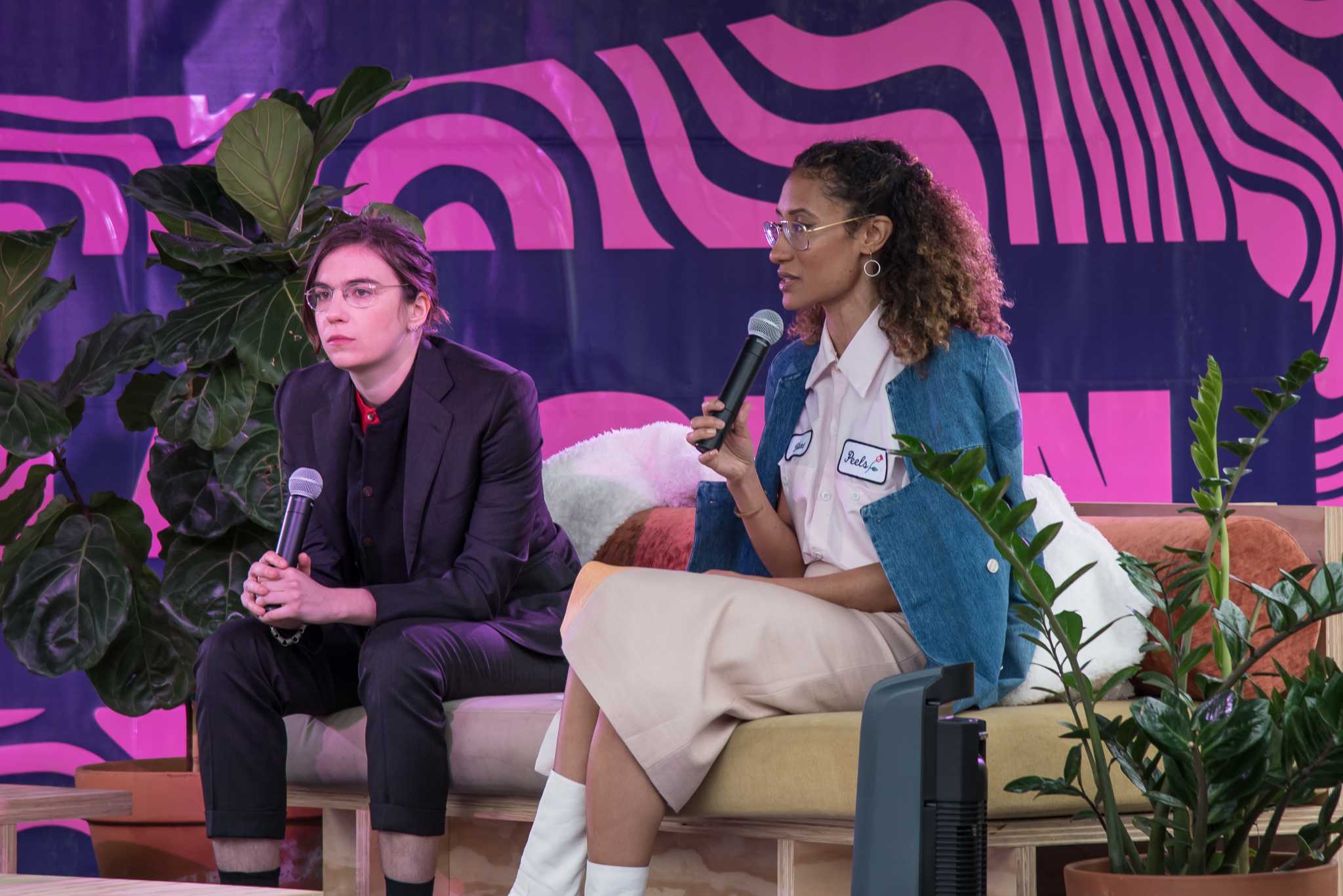From left to right: Rowan Blanchard, Yara Shahidi, Grace Dunham and Elaine Welteroth
On Sunday, Mar. 12, Urban Outfitters kicked off its SXSW programming with a day full of panels co-sponsored by Teen Vogue. Moderated by Teen Vogue’s editor-in-chief Elaine Welteroth, the first panel featured poet Grace Dunham and actresses Rowan Blanchard and Yara Shahidi. All four women had a lot to say about how the recent election made activism through art more important.
Story by Katarina Brown
Photos by Mario Guajardo Clark
“I think we know two things by looking at the history of times during political unrest,” Welteroth said. “One is that artists get to work. And two is that young people are usually on the right side of history.”
Welteroth knows a little about both. Since starting her position as editor, Teen Vogue has received praise for increasing its political coverage alongside its typical coverage of fashion and lifestyle. For her, the connection between arts and activism is obvious: “It’s harder to ignore stories you know,” Welteroth said.
Welteroth addresses the audience.
The other panelists were in agreement, viewing social media as one of the best ways not only to disseminate their art, but also their political opinions. “Post-election, I feel like everyone re-examined their platform and their audience,” said Shahidi, actress on ABC’s hit TV show “Black-ish.” “I’ve personally done so by making my message as human as possible. So many times when you think about the issues, they’re so theoretical. When people say defund Planned Parenthood, people don’t fully understand what they’re defunding.”
Blanchard, star of Disney Channel’s “Girl Meets World” agreed. For her, this means promoting trans and nonbinary stories. The idea of blending of art, politics and different identities is a natural point of intersection. “Our work starts in the spectrum,” Blanchard said “It starts in this middle ground. We work in metaphor.”
Blanchard and Shahidi keep warm under blankets.
Here, Dunham nodded in agreement. As a lesbian poet and artist, her political leanings frequently turn to metaphor in her work. She described turning to her community of artists for empathy after the election. Like Blanchard, Dunham believes art and activism do their best work when not constrained by exclusiveness or a binary. “In my relationships and my communities, I want to move away from any kind of scarcity,” Dunham said. “We need to move towards expansiveness.”
She and others on the panel see social media as a way towards this expansiveness. Social media, Shahidi says, not only helps break down the idea of monolithic identity, but it also helps those who may come after. “There are so many platforms through which we can discuss the intersectionality and the detail of identity,” Shahidi said. “We’re really creating our own canon now and are in charge of how we will be archived and how we will viewed by future generations.”
Dunham and Welteroth.
The curation of important discussions through social media will help future generations, and, most importantly for the panelists, future voters. When she thinks about for who she is creating her art for, Blanchard said it’s mainly for young people who have the potential to change their views. “It’s not for the 40-year-old men who voted for Trump,” Blanchard said. “It’s for the girl who comments something homophobic on my Instagram post, because she’s the one who will be voting in a few years.”
Throughout the discussion, the panelists circled back to these future voters in one way or another. “There’s this ongoing myth that young people aren’t engaged with politics, and it’s just not true,” Dunham said. “When people tell you that you’re disengaged, that’s a misread of believing that the way that things are is wrong, and that things need to be a different. And I think that’s a powerful thing that really unites young people across so many different ways of life.”
When Welteroth asked the panelists about what gives them hope, Dunham replied, “I feel really hopeful about young people.”































